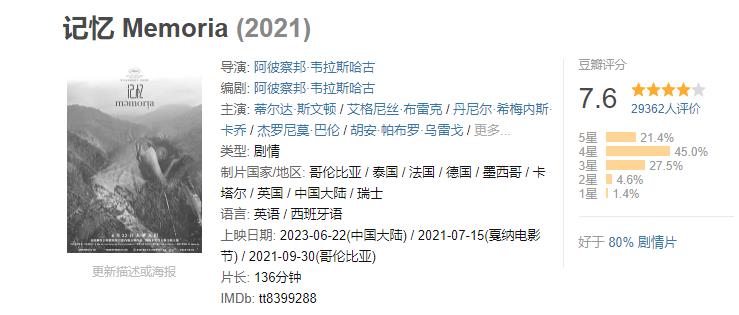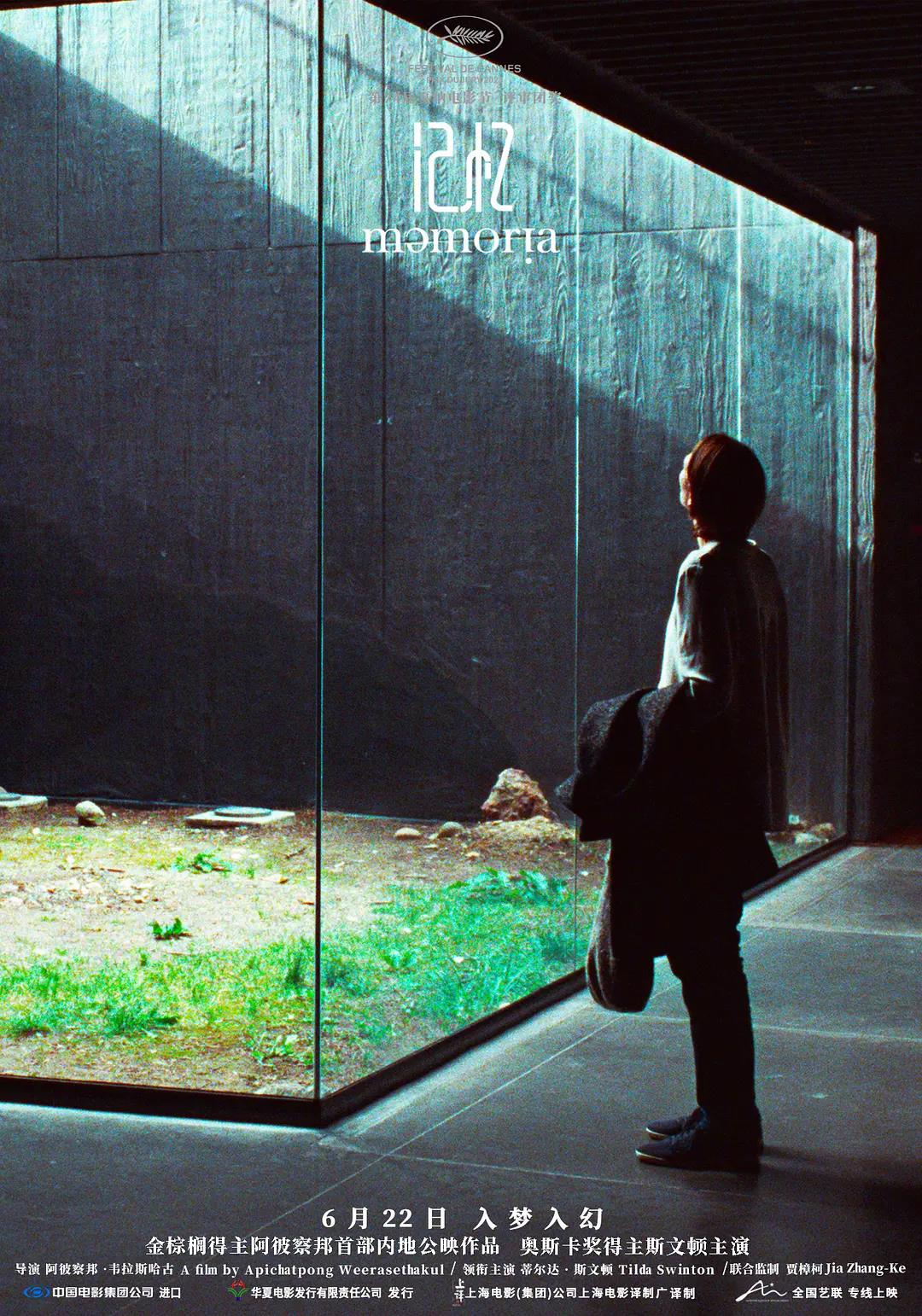The box office topped the list in the world. How did this "alternative" movie do it?

Special feature of 1905 film network China topped the world in just four days at the box office, with a Douban score of 7.6, and the number of people watching movies has basically achieved the set goal … … These good data and achievements belong to movies — — An unpopular masterpiece that is quite "different" both inside and outside the play.
There is no doubt that Memory is a minority. Although it came up with the golden signboard of "Palme d ‘Or winner+Oscar winner" at the beginning of the publicity, the audience appeal of Abicha Banghe is obviously far from enough to win a place for such a boring film in the hot summer file.
It is nothing new that literary films are "out of place" with the market, not to mention Memory, which is an extreme work with a very slow rhythm and a dreamlike stream of consciousness, and sometimes even can only "read" the plot by sound. What is its "confidence" in challenging the market?

The answer is that if you really want to enter the market, you must first really "join the WTO."
For a long time, "literary film fans" and "ordinary audience" were gradually separated by their prejudice and aesthetic differences. The so-called movie threshold has become a protective shell of their own: literary films are sometimes criticized for not understanding movies, and those with low box office "blowing" movies will occasionally be laughed at as fake in the circle.
The last time this kind of "minority culture" came out of the circle was a farce with a slightly awkward ending. Those who also came from the Cannes Film Festival were packaged as the first love drama in the New Year’s Eve and tried to "forcibly" attract ordinary audiences. Instead, they were accused of "boring film fraud", which triggered a heated discussion between literary film fans and other audiences.
Memory boldly embraced the audience with its own "disadvantages" — — Don’t understand, sleep? Never mind. Have a good dream.

Perhaps it is because the director Abichabang was once a member of the audience who fell asleep. He and the producer and other creative directors readily accepted this seemingly "ignorant movie" approach, and even took the initiative to invite everyone to "come to sleep".
It is true that "half-dreaming and half-waking" just fits the tonality of Memory, and this "very literary" reverse operation is closer to the original intention of the director’s creation.
Perhaps compared with many literary films that landed in the cinema in the past, Memory is more difficult to understand and has a higher "threshold", but it has broken the barrier of some prejudice in a special way. The goal of "60,000 people watching movies" and the world’s first box office of 2 million+are doomed to remain an "alternative", but as producer Jia Zhangke said, "the number is not big, which is of great significance".

A small step for Memory should also be a big step for literary films in China market. It is proved by practice that movies are "open" and that there are enough people who love movies in China.
"Sleeping well" is not a gimmick, but a key. I hope that more "minority" movies dare to embrace the public in the future, and expect the market to form a more inclusive and mature channel mechanism in a virtuous circle, so that more viewers and movies can realize their love in an "open" space.